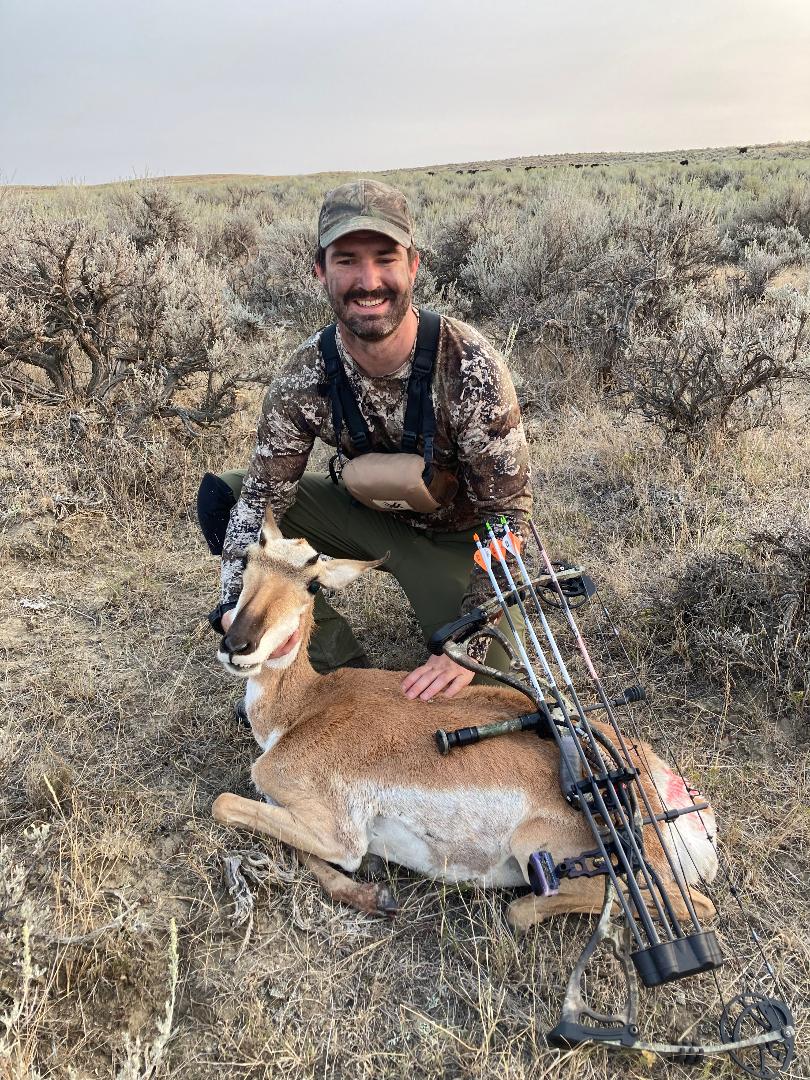
Getting the most out of a harvested animal shows respect for the resource.
By John Bradley
Ethics refers to the study of how to determine the right or moral way to act when faced with everyday human predicaments. Hunting ethics are a set of moral standards that help us, as hunters, to make the right choice when we out on a hunt. I usually explain it as doing the right thing, even when no one is watching. Not everyone agrees on what doing the right thing means exactly, but for most situations adhering to the following set of general ethical hunting guidelines helps ensure that you are acting responsibly and helps to keep our outdoor heritage alive.
Following Hunting Laws
The minimum of hunting ethically begins with following the hunting rules and regulations for your area. You cannot hunt ethically while also breaking hunting laws. It is your responsibility to educate yourself on the laws that govern the specific area where you are hunting. Claiming ignorance of a hunting law is not a valid excuse for breaking it. If you see someone else breaking the hunting laws in your area, it is your responsibility to report it. In North Dakota, there is a hotline to report hunting and fishing violations. The Report All Poachers number is 701-328-9921.
Respect the Animal
Another part of being an ethical and responsible hunter involves respecting the animal you are pursuing. As a hunter, you have made the decision to end an animal’s life, and you owe it to the animal to make its death as quick, painless, and as certain as possible. This means knowing your equipment and honing your skillset to harvest the animal successfully. Becoming highly skilled includes practicing before the season with your weapon and developing a safe handling routine. It also means educating yourself about the animal’s biology and determine the best spot to shoot the animal that will yield the greatest chance for a quick expiration. You should also make every effort to find and recover the animal that you have shot. Shooting a game animal without the intent of recovery is not hunting – it is simply killing. If you do not have a reasonable amount of confidence that you can accurately hit and recover the animal, you should not take the shot at all. On a recent antelope hunt, my dad turned down a great buck that hung up at 65 yards, not wanting to fling an arrow and risk wounding the animal. In the moment, horns and antlers can tempt you to do stupid things. Its important to have limits set before the hunt and stick to them.

Only harvest as many animals as you can use without wasting any of the meat or other parts. Take care to properly handle the animal after recovery so that the usable and edible parts are not ruined. After recovery, either process the animal yourself or take the animal to a processor as quickly as you can to minimize the chance of meat spoiling.
Respect Others
Whether you are hunting on private or public land, you are a guest of the land and you should conduct yourself accordingly. When hunting on private land, it is best to obtain the proper permission from the landowner and follow any rules they have relating to the use of that specific property. If the land is posted, you must obtain permission. When hunting on public land, respect the space of other hunters and other folks who may be utilizing the area for non-hunting activities. Be courteous to people that you encounter in the woods. I always encourage hunters to leave the place better than they found it – pick up cans, bottles, and any other trash. Finally, if a private landowner has granted you permission to hunt, be sure to say thanks for being given the opportunity.
Fair Chase
The Boone and Crockett Club describes fair chase as “the ethical, sportsmanlike and lawful pursuit and taking of any free-ranging wild, native North American big-game animal in a manner that does not give the hunter an improper advantage over such animals.” In other words, it is unethical to use certain tactics or to hunt in certain spaces that give the hunter an overly unfair advantage by lowering, beyond what is reasonable, the chance for the animal to escape. This includes shooting an animal that is caught in a trap, deep snow, water or ice, shooting an animal from a vehicle, or using a vehicle or boat to herd or drive animals to a particular location, spotlighting an animal and shooting at night, or shooting an animal that has been leashed, caged or drugged to prevent the animal from escaping.
Pass it on
The final responsibility, and perhaps the greatest one, is to pass along an ethical hunting culture to new hunters. The most powerful way of doing this is to lead by example. Young people and those less experienced pay close attention to how the hunters around them conduct themselves, and they mimic the actions and ethical choices of those experienced, mature hunters. Simply put if you shoot signs, trespass, or take unethical shots; they will too.
If you are hunting with a group, it is important that you encourage your fellow hunters to hunt ethically and hold them accountable if they suggest an unethical idea, because, as the saying goes: “one bad apple spoils the barrel.” Tolerating unacceptable behavior from those in your hunting party may result in the entire group being banned from hunting in an area in the future because of one careless or selfish act.
When considering the sometimes negative and critical spotlight that is publicly shined upon hunters by the news, Hollywood, and anti-hunting groups, it is important to conduct yourself in an ethical manner that keeps our hunting tradition intact for future generations.
